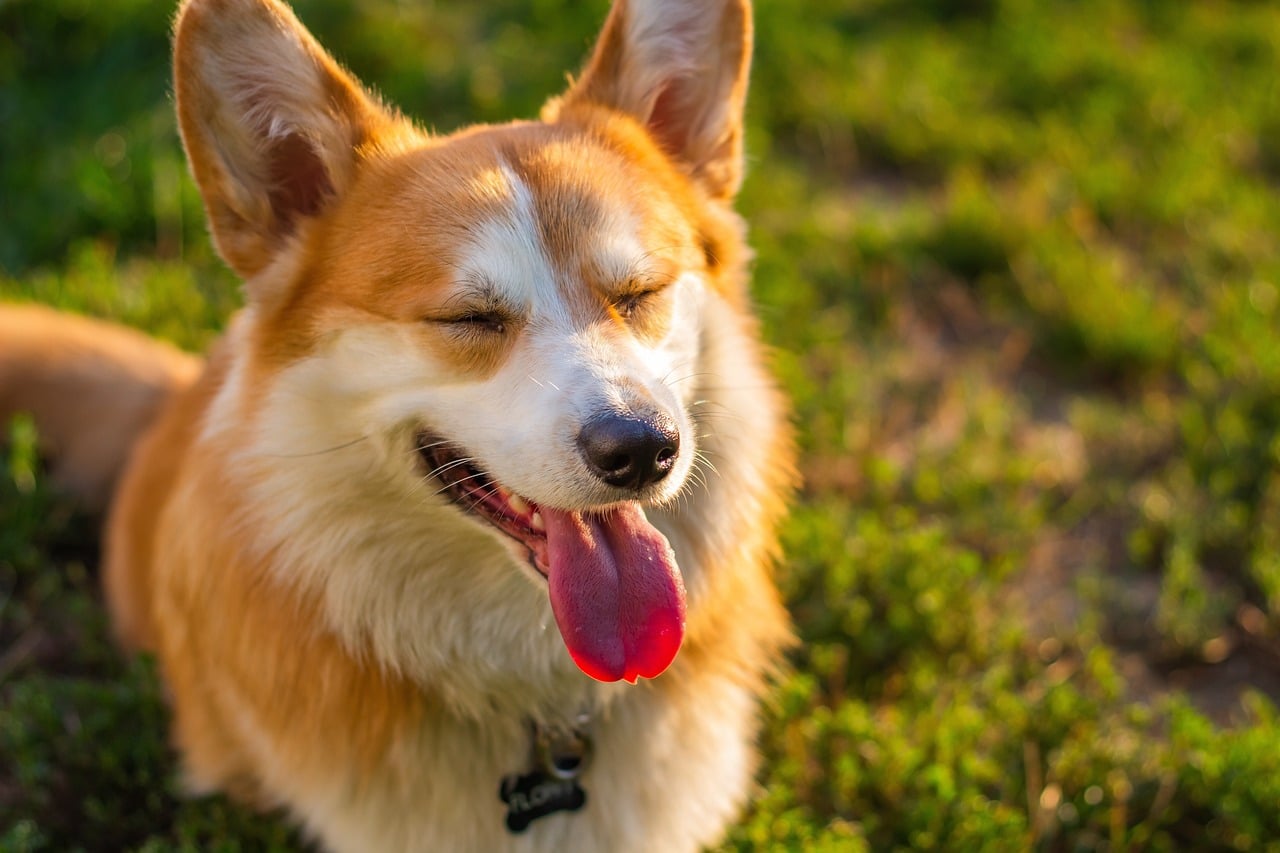 Shutterstock
Shutterstock
Dogs have an extraordinary sense of smell, believed to be 10,000 to 100,000 times more sensitive than humans. This heightened ability allows them to detect a wide range of scents from far distances, making their noses incredibly useful. However, their powerful sense of smell also means they are much more likely to find certain odors unpleasant or overwhelming. While we may enjoy or barely notice some scents, dogs can find them offensive or distressing, prompting them to avoid certain areas or react negatively to particular smells.
Citrus
 Shutterstock
Shutterstock
Citrus fruits like oranges, lemons, and limes may have a refreshing scent for us, but dogs find these smells overwhelming and unpleasant. The strong citrus aroma is too intense for their sensitive noses, and they often avoid areas where these fruits are present. Citrus peels are sometimes used as a natural deterrent to keep dogs away from gardens or off furniture. If you want to keep your dog away from certain places, using citrus scents can do the trick, as most dogs will give a wide berth to the tangy odor.
Vinegar
 Shutterstock
Shutterstock
While vinegar is great for cleaning and can be used as a natural disinfectant, its strong, pungent odor is something that dogs absolutely hate. The sharpness of vinegar is overwhelming for a dog’s heightened sense of smell, and they may even sneeze or paw at their nose if they get a whiff of it. Many pet owners use vinegar as a deterrent to keep dogs away from areas where they shouldn’t go, such as trash bins or furniture. Just be careful not to use it directly on your dog, as it can be too harsh for their sensitive noses.
Ammonia
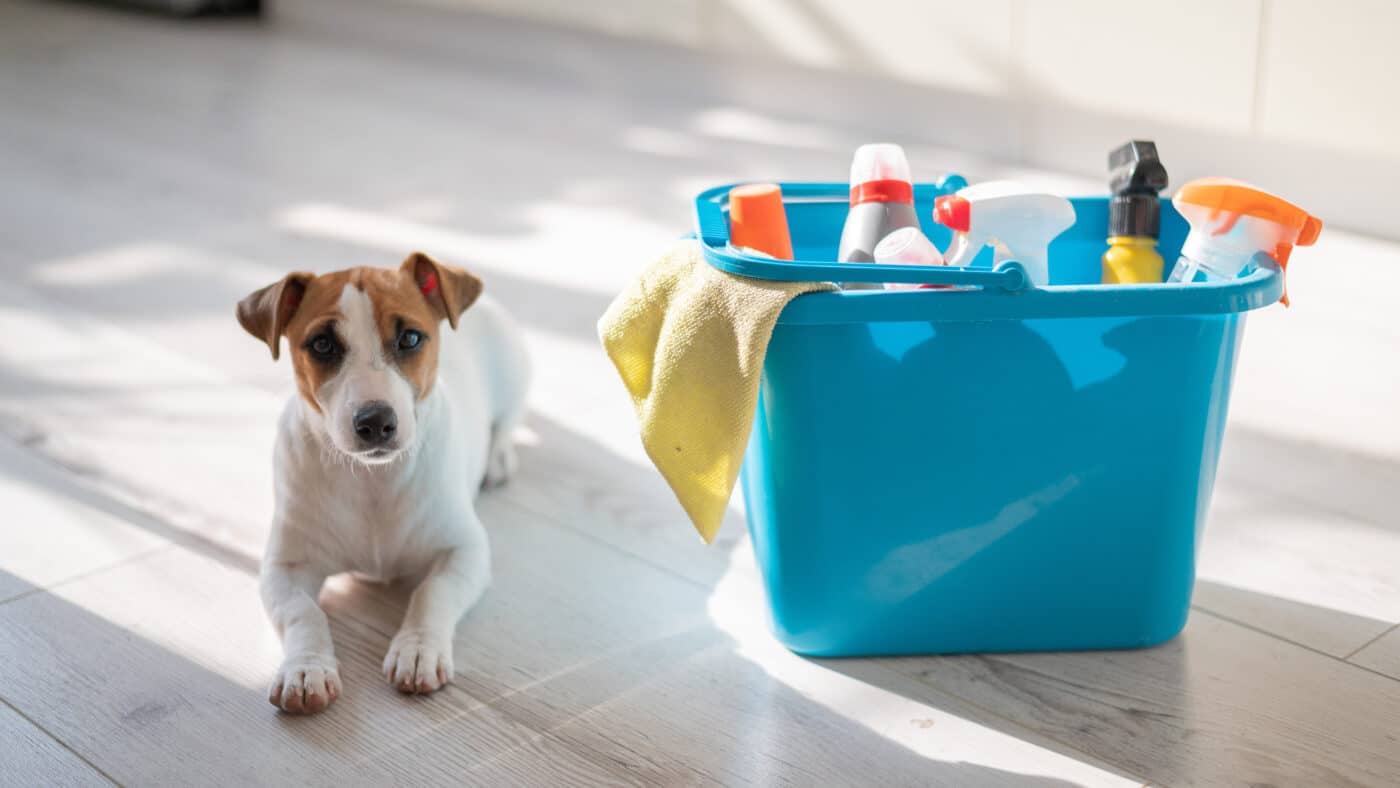 Shutterstock
Shutterstock
Ammonia is another scent that dogs find repulsive. The strong chemical odor is harsh on their sensitive noses and can even irritate their respiratory system if inhaled in large amounts. Dogs often associate the smell of ammonia with urine, which is why it can trigger a negative reaction. It’s best to avoid cleaning products that contain ammonia if you have dogs in the house, as they may find the lingering scent distressing. Instead, opt for pet-friendly cleaning products that are safer and less offensive to your furry friend.
Rubbing Alcohol
 Shutterstock
Shutterstock
Rubbing alcohol has a strong and distinct smell that most dogs find off-putting. The sharpness of the alcohol is overwhelming to their senses, causing them to avoid areas where the scent is present. While it’s common to use rubbing alcohol for cleaning or first-aid purposes, it’s best to keep it away from your dog’s nose. If your dog needs a wound cleaned, use pet-safe antiseptic solutions instead, as rubbing alcohol can sting and further aggravate their already strong aversion to the smell.
Perfumes and Colognes
 Shutterstock
Shutterstock
While many of us enjoy wearing perfumes and colognes, the strong scents in these products can be overwhelming for dogs. Their sensitive noses are bombarded by potent fragrances, which often contain chemicals and artificial ingredients that can be irritating. Even a mild perfume can be too intense for dogs, causing them to sneeze, shake their head, or rub their face on the ground to escape the smell. If you plan to interact closely with your dog, consider opting for unscented or pet-friendly products to avoid overwhelming their sense of smell.
Mothballs
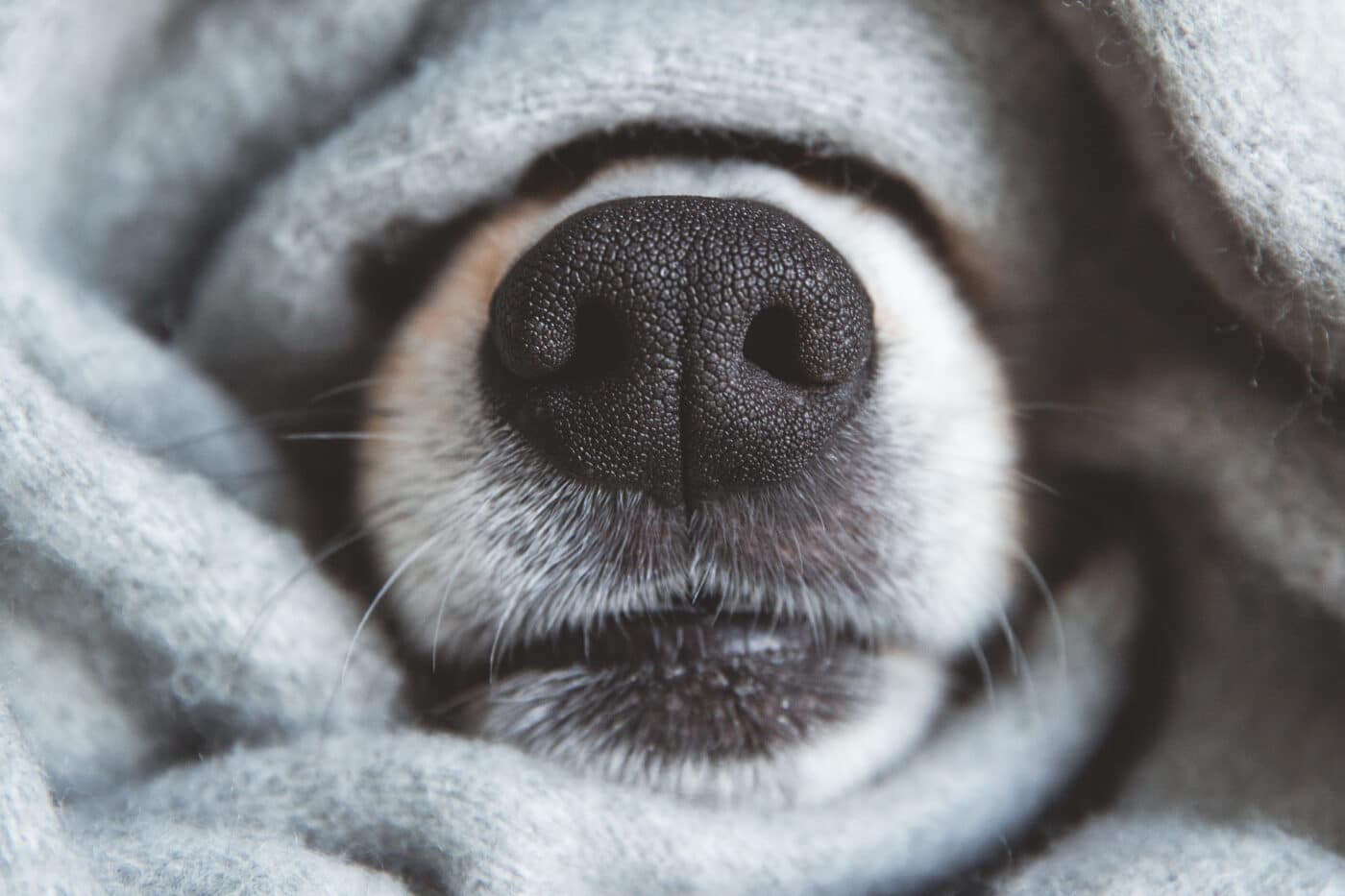 Shutterstock
Shutterstock
Mothballs are known for their strong and pungent odor, which is used to repel insects. Unfortunately, this scent is also highly unpleasant for dogs and can even be toxic if ingested. The chemicals in mothballs are harsh on a dog’s sensitive nose, and they will often avoid areas where mothballs are present. If you need to keep moths away from clothing or storage areas, place mothballs out of your dog’s reach or consider using natural alternatives like cedar chips, which are less offensive to their sense of smell.
Nail Polish and Nail Polish Remover
 Shutterstock
Shutterstock
Nail polish and nail polish remover have a strong, chemical scent that is off-putting to dogs. The fumes from these products are harsh on a dog’s sensitive nose and can cause them to sneeze or rub their nose to escape the smell. Acetone, commonly found in nail polish remover, can be particularly irritating. If you’re doing your nails at home, keep your dog away from the area to prevent them from inhaling the fumes. It’s always a good idea to ventilate the space to minimize the impact on your dog’s sensitive sense of smell.
Household Cleaners
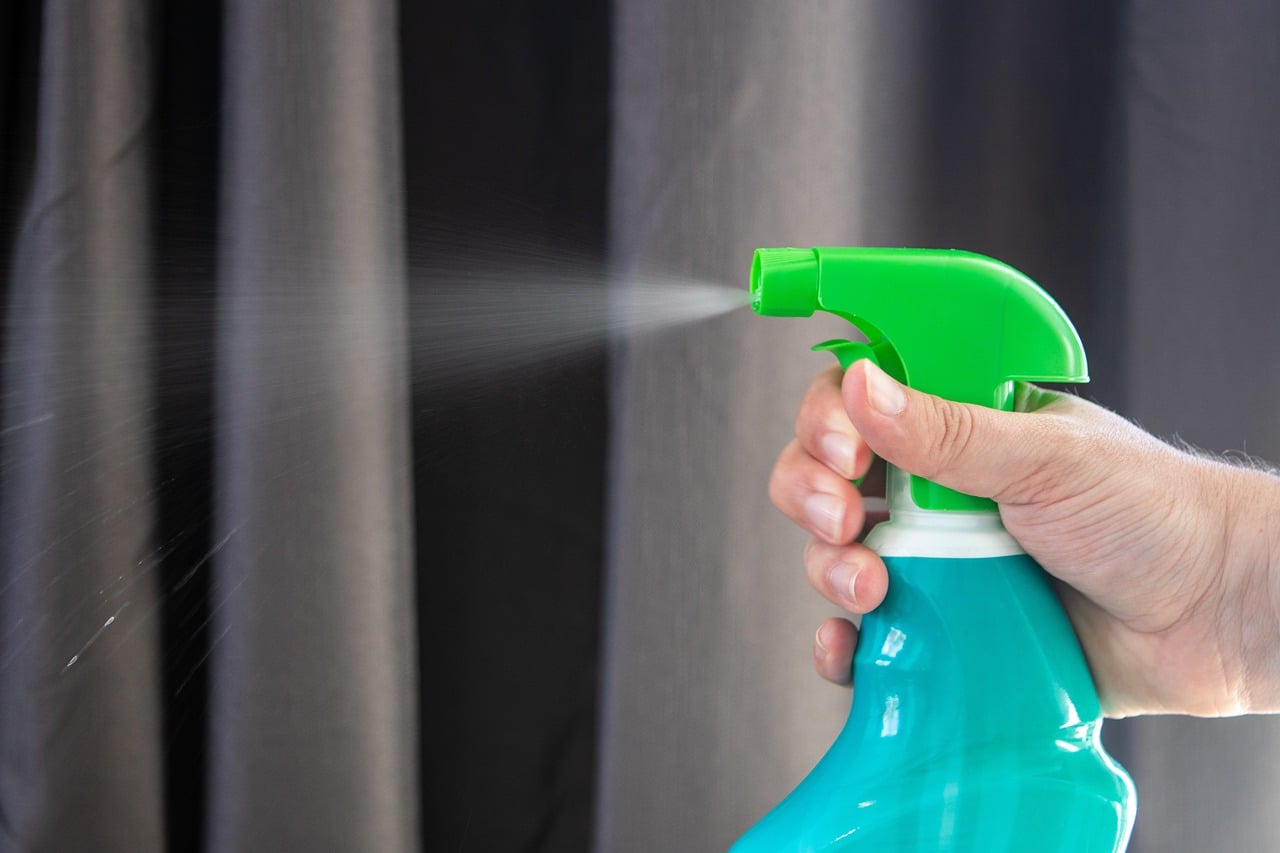 Shutterstock
Shutterstock
Many household cleaners contain strong chemicals and artificial fragrances that can be overwhelming for dogs. Bleach, ammonia, and other cleaning agents have intense odors that dogs find unpleasant and irritating. The strong fumes can affect a dog’s respiratory system and may cause them to avoid areas where these cleaners are used. Consider using pet-safe, natural cleaning products that are less offensive to a dog’s nose. They are better for your dog’s health and can also help make your home more dog-friendly.
Essential Oils
 Shutterstock
Shutterstock
While essential oils are often used for aromatherapy and natural cleaning, some scents can be too strong for dogs. Oils like eucalyptus, tea tree, peppermint, and cinnamon are particularly offensive to dogs, and exposure to these scents can cause discomfort or even toxicity. While essential oils are natural, they are highly concentrated, which makes their aromas too intense for dogs. If you’re using essential oils in your home, make sure they are diluted and used in moderation and avoid diffusing oils known to be harmful to dogs.
Smoke
 Shutterstock
Shutterstock
The smell of smoke, whether from cigarettes, cigars, or fires, is something dogs absolutely detest. Their sensitive noses pick up on the strong and pungent odor, and prolonged exposure to smoke can irritate their respiratory system. Inhaling smoke can harm a dog’s health, causing coughing, sneezing, or even breathing problems. If you smoke, it’s best to do so away from your dog and avoid exposing them to secondhand smoke. Similarly, if you’re having a bonfire or barbecue, ensure your dog has a smoke-free space to retreat.
Cleaning Products with Citrus Scents
 Shutterstock
Shutterstock
Although citrus fruits are offensive to dogs, cleaning products with added citrus scents can be just as unpleasant. Many cleaning products use lemon or orange scents to leave a fresh aroma after cleaning, but dogs find these artificial citrus smells overwhelming. The combination of strong chemicals and citrus fragrance can be particularly harsh on a dog’s sensitive nose, leading them to avoid areas where these cleaners are used. When choosing cleaning products, consider pet-safe options free from artificial scents.
Cayenne Pepper
 Shutterstock
Shutterstock
Cayenne pepper is another spicy scent that dogs find unappealing. Sprinkling a small amount of cayenne pepper around areas where you don’t want your dog to go, such as gardens or certain corners of the yard, can help keep them away. The strong, spicy scent is unpleasant for dogs, and they’ll avoid areas where the smell is present. Just be sure to use cayenne pepper sparingly, as it can irritate their sensitive noses if they get too close.
Eucalyptus
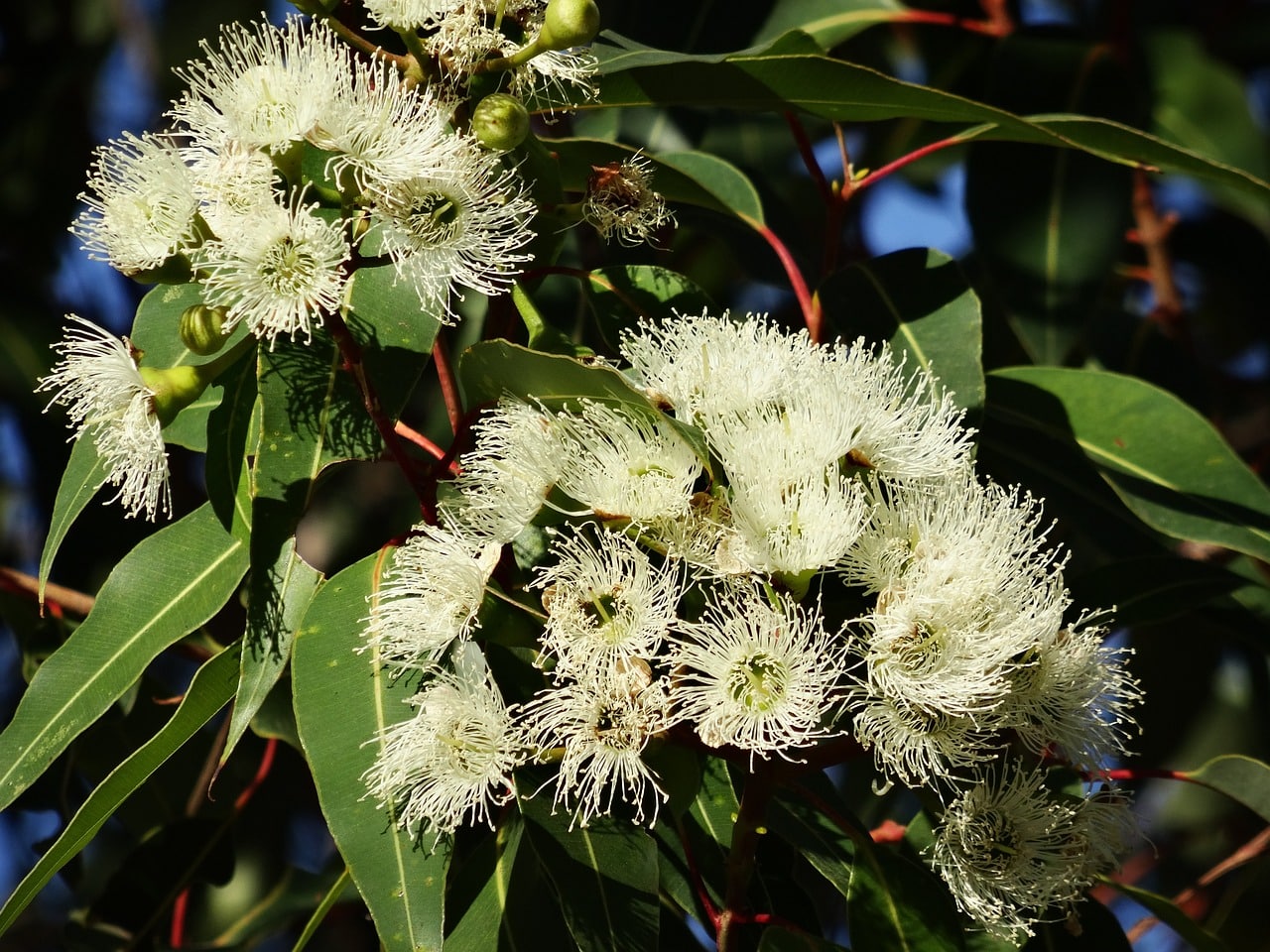 Shutterstock
Shutterstock
Eucalyptus has a strong, medicinal scent that dogs find particularly unpleasant. The smell is often used in cleaning products and air fresheners, but it can overpower a dog’s sensitive nose. While eucalyptus is great for humans looking to freshen up a room, it’s not something your dog will appreciate. It’s important to remember that concentrated eucalyptus oil can be toxic to dogs, so always keep it out of reach.
Clove
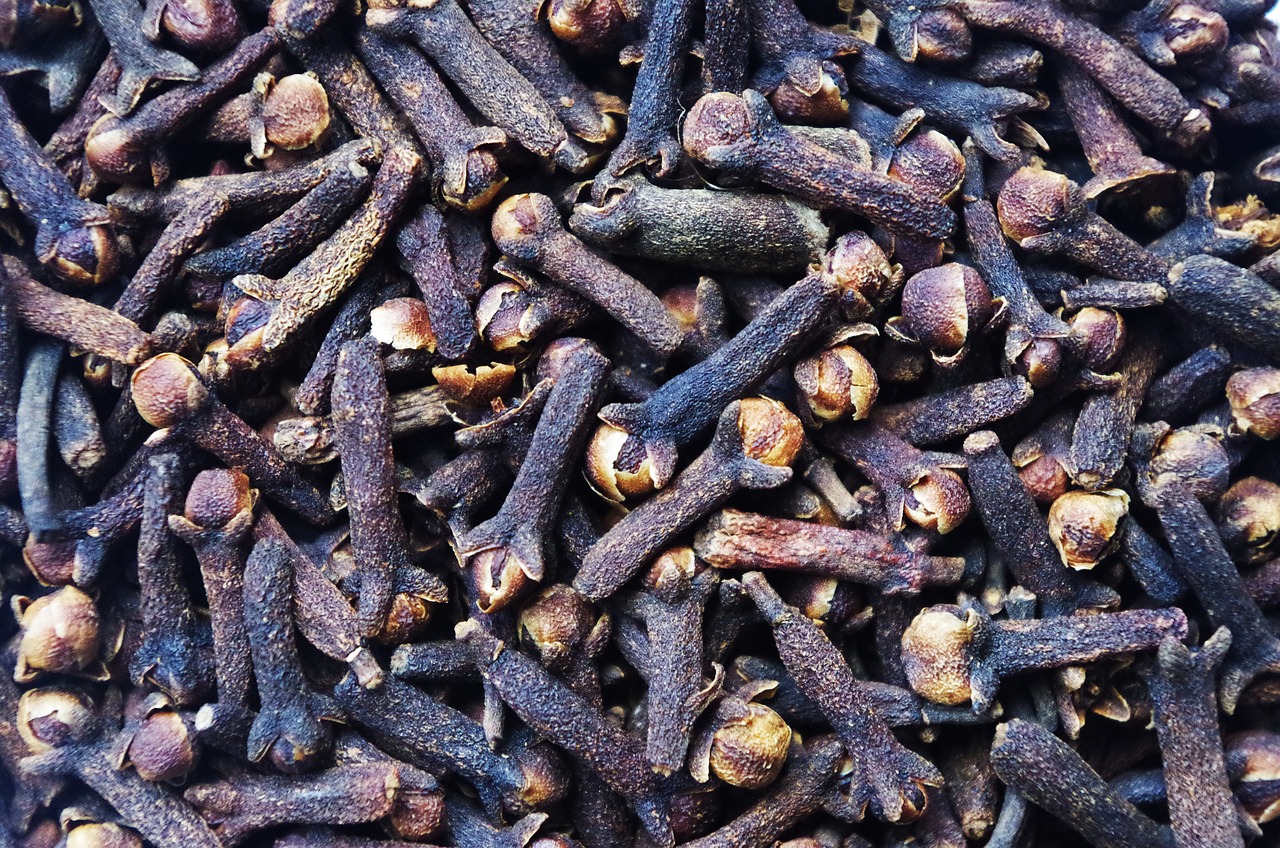 Shutterstock
Shutterstock
The spicy, warm scent of clove is another that dogs tend to avoid. Clove is often used in cooking and home remedies, but it can be overpowering for dogs. Its strong aroma can be a natural repellent if you’re trying to keep your dog out of certain areas of the house. Be sure to use clove-based products carefully around dogs, as clove oil can be irritating if used in large quantities.
Black Pepper
 Shutterstock
Shutterstock
The sharp and spicy scent of black pepper is unpleasant to dogs. The active compound, piperine, in black pepper can irritate their sensitive noses and even cause sneezing if they get too close. A light sprinkling of black pepper around areas where you want to keep your dog away can be a natural deterrent. Just be careful not to use too much, as it can cause discomfort if inhaled in large amounts.
Coffee Grounds
 Shutterstock
Shutterstock
The rich aroma of freshly brewed coffee may be a favorite wake-up call for humans, but for dogs, coffee grounds have an intense and bitter smell that they dislike. Coffee grounds can be used as a natural deterrent in gardens or around certain spots in the home where you don’t want your dog to venture. Just be sure your dog doesn’t ingest coffee grounds, as caffeine is toxic to dogs.
Cinnamon
 Shutterstock
Shutterstock
Cinnamon has a warm, spicy scent often associated with cozy holiday treats, but dogs don’t find it nearly as pleasant. The intense smell of cinnamon can be irritating to a dog’s nose, causing them to steer clear of the area where it’s present. If you want to keep your dog out of certain parts of the house or away from furniture, sprinkling a small amount of cinnamon powder can be a deterrent. Just avoid using cinnamon oils, as they can be too strong for your pup.
Garlic
 Shutterstock
Shutterstock
Garlic’s strong odor is another scent that dogs aren’t particularly fond of. While garlic can add great flavor to our food, dogs find the smell too pungent and will generally avoid it. If you want to keep your dog away from certain plants or areas in your garden, garlic powder can be used as a natural repellent. However, be cautious with garlic around dogs, as large amounts of it can be harmful if ingested.
Peppermint
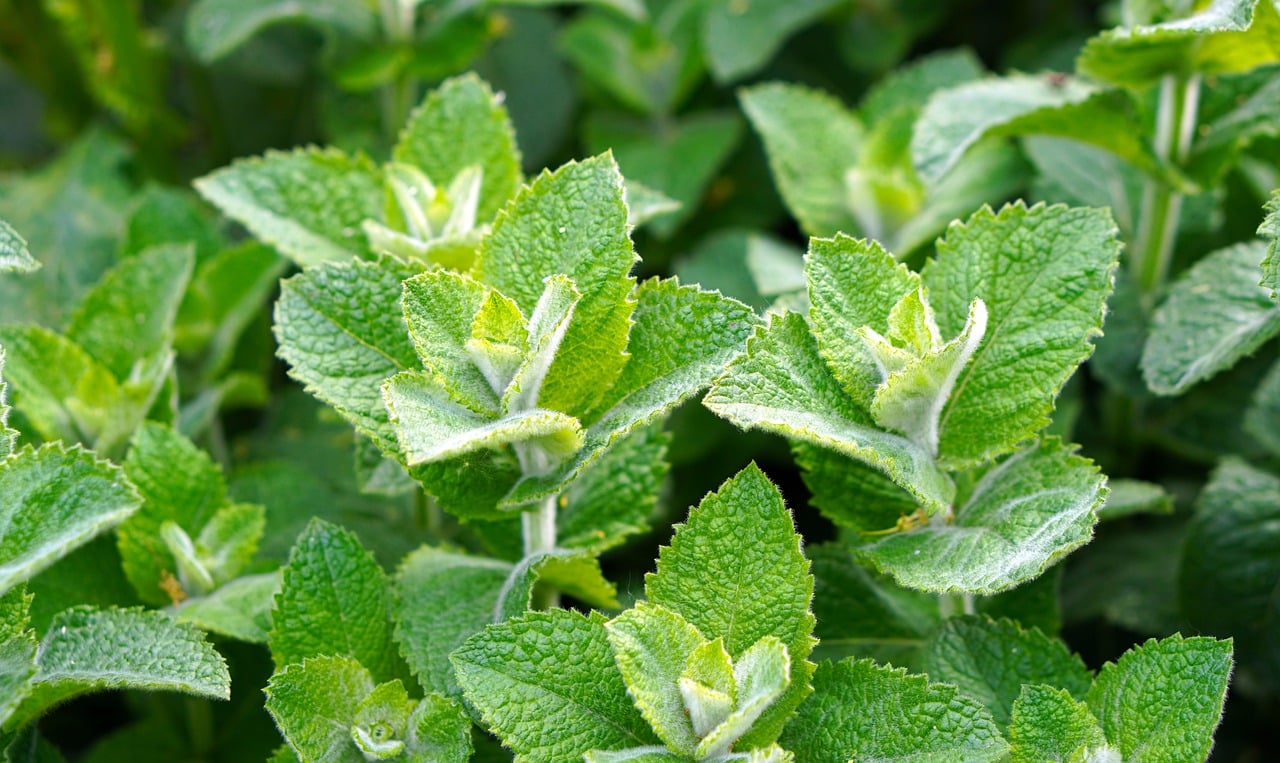 Shutterstock
Shutterstock
Peppermint is often used to freshen up spaces and deter pests, but it’s not a favorite smell for dogs. The menthol in peppermint is particularly strong, and it can be overwhelming for their sensitive noses. Due to its potency, Peppermint essential oil should never be used directly on or around pets, but a mild peppermint spray can help keep dogs away from certain areas. The scent might make your home smell minty fresh, but your dog will likely want to stay away.
Bay Leaves
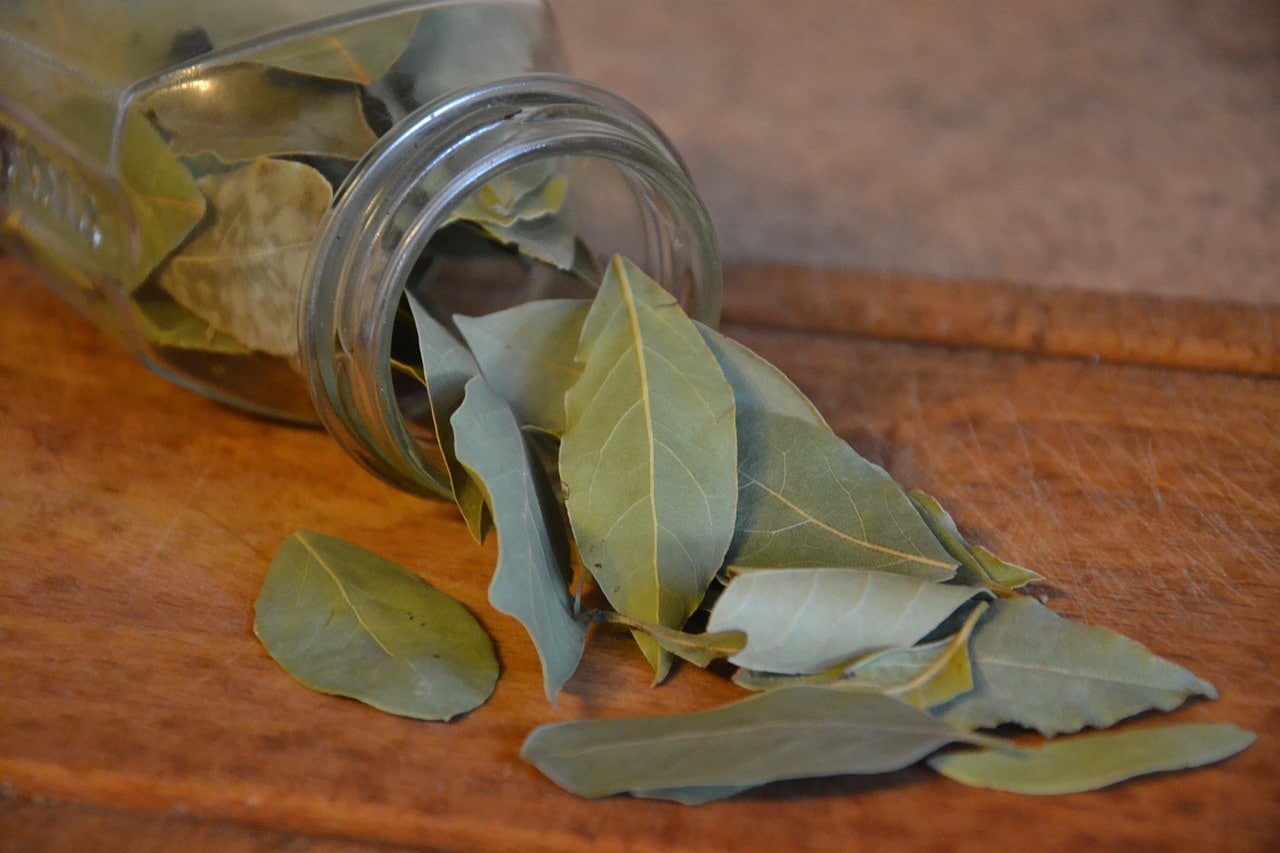 Shutterstock
Shutterstock
Bay leaves are another herb that dogs tend to avoid due to their strong, earthy aroma. While we might enjoy the depth of flavor that bay leaves bring to soups and stews, the scent is far too intense for dogs. If you have a dog that likes to dig in your garden, scattering a few dried bay leaves can help keep them away from certain plants. Just ensure your dog doesn’t try to eat the bay leaves, as they can be harmful if ingested.
Mustard
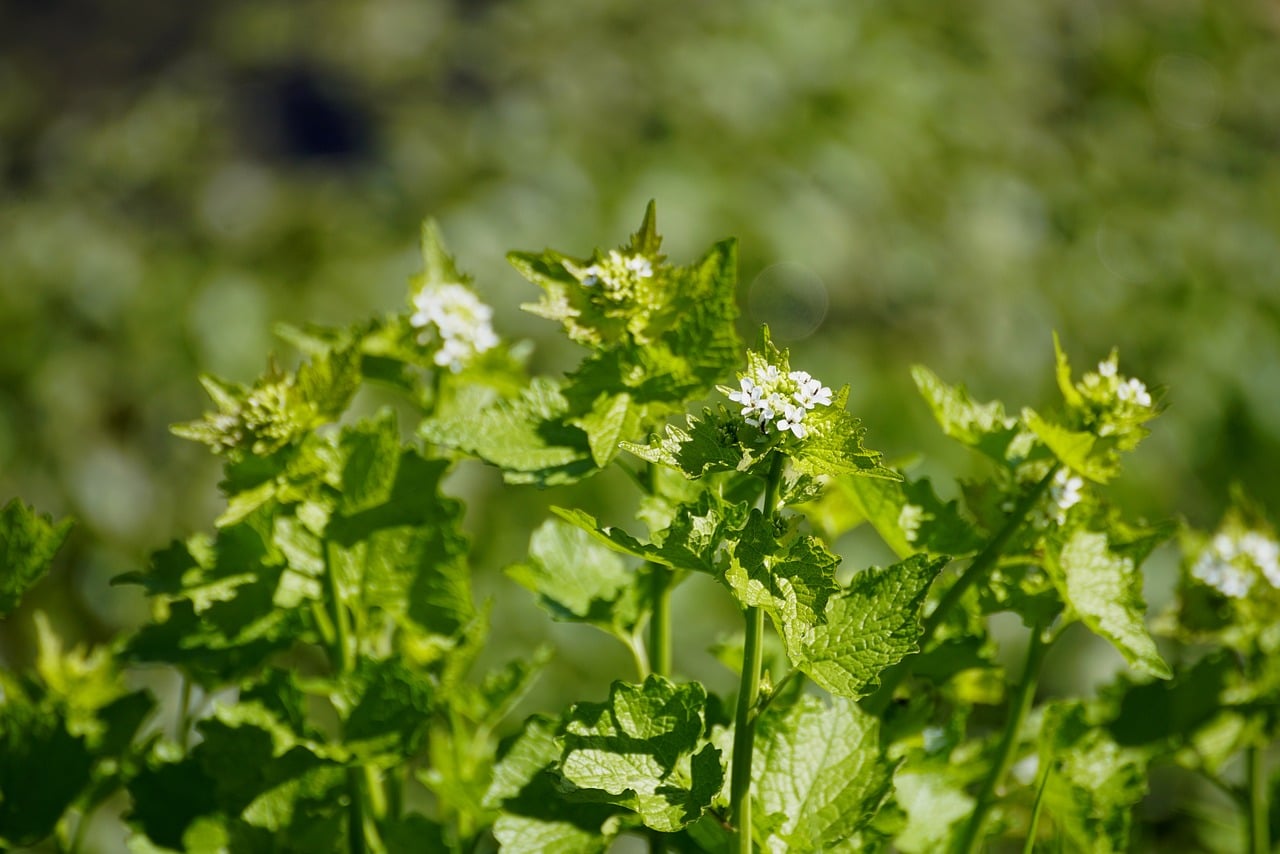 Shutterstock
Shutterstock
Mustard has a potent, sharp smell that dogs really dislike. The spicy and pungent aroma can be overwhelming for their sensitive noses. A diluted mustard solution can do the trick if you’re looking for a way to keep your dog from chewing on certain objects. The strong scent will encourage them to steer clear. Just be sure to use it sparingly, as mustard can be irritating if it comes into contact with your dog’s skin or is ingested.
Cabbage
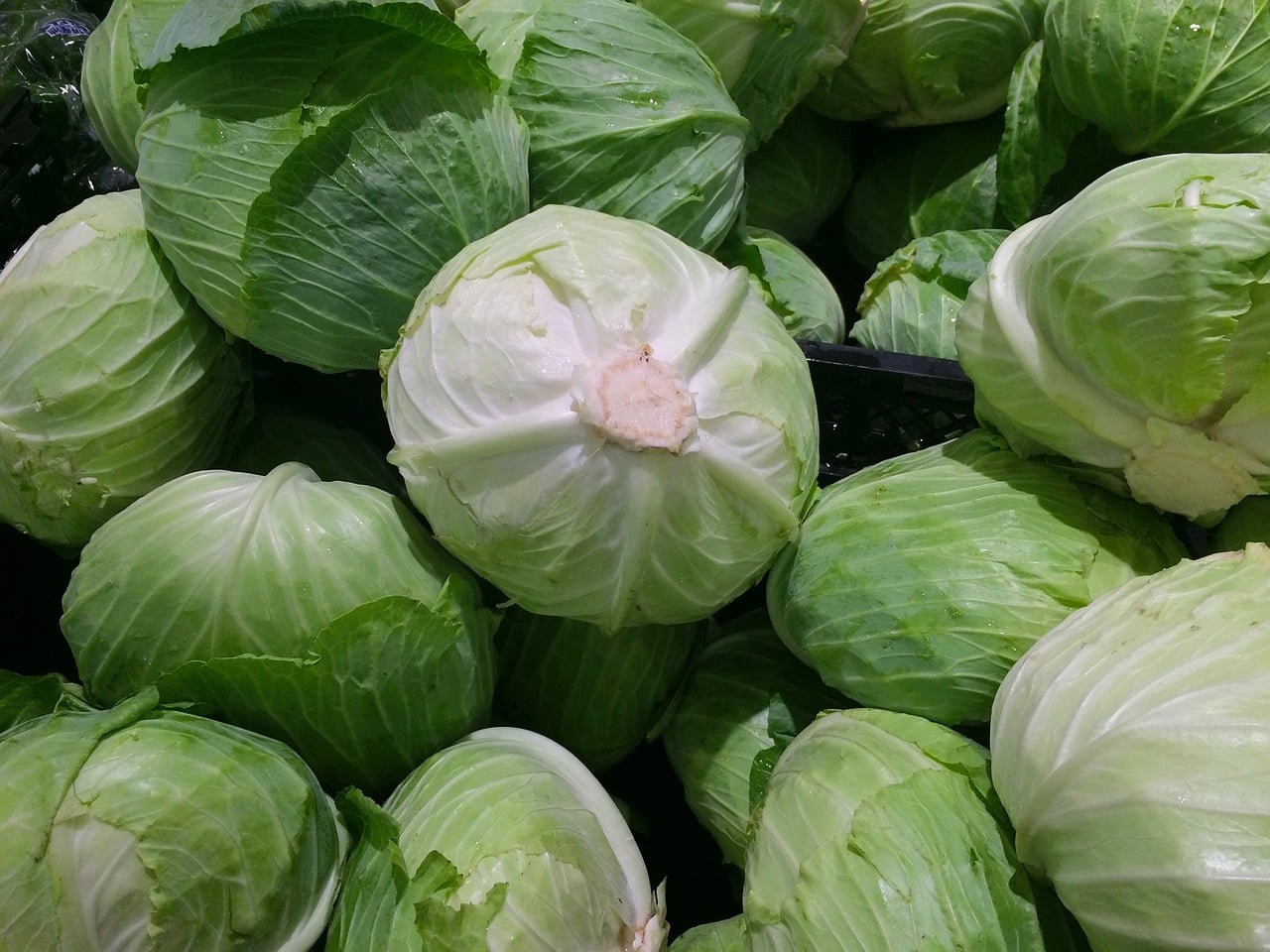 Shutterstock
Shutterstock
While cabbage might not have a strong scent to us, the odor released when it’s cooked or raw can be off-putting to dogs. The sulfur compounds in cabbage give it a smell that dogs find unpleasant. Using cabbage as a deterrent in gardens or outdoor areas can help keep dogs from digging or chewing on plants. It’s also important to note that too much cabbage is not great for dogs’ digestion, so keeping it as a repellent rather than a snack is wise.
Chili Peppers
 Shutterstock
Shutterstock
The spicy, pungent aroma of chili peppers is something dogs can’t stand. The capsaicin in chili peppers, which gives them their heat, also irritates a dog’s nose and respiratory system. Even a small whiff of chili pepper can cause a dog to sneeze or paw at their face. Some pet owners use chili pepper powder as a natural deterrent to keep dogs away from certain areas. Still, it’s important to be cautious, as exposure to chili peppers can cause discomfort and irritation to your dog.
Ginger
 Shutterstock
Shutterstock
Ginger’s spicy and warm scent can be too intense for a dog’s sensitive nose. While humans often appreciate ginger in tea or baked goods, dogs are more likely to avoid areas with strong scent. Using a small amount of grated ginger or ginger powder around certain areas can help keep your dog away if they get into mischief. Just be careful with the amount, as you don’t want to cause irritation to your dog’s nose or digestive system.
Marigold
 Shutterstock
Shutterstock
Marigolds are known for their bright, cheerful appearance, but their scent is far less appealing to dogs. The smell of marigolds is strong and somewhat bitter, which makes them effective for keeping dogs out of gardens or flower beds. Planting marigolds around the perimeter of your yard or using dried marigold flowers can create a natural barrier that dogs are likely to avoid. It’s a win-win: you get a beautiful garden, and your dog learns to keep out of your flower beds.
Smells Dogs Won’t Tolerate
 Shutterstock
Shutterstock
Some odors are unbearable for dogs, causing reactions ranging from sneezing and discomfort to complete avoidance. While we may find certain scents pleasant or barely noticeable, they can be overwhelming for our furry friends, turning a seemingly harmless smell into a nightmare. Remember your dog’s sensitive nose the next time you’re using strong-scented products, cooking with spices, or cleaning with harsh chemicals. Give them a break from those overwhelming aromas because your dog’s nose truly knows best when it comes to “sniffing out” trouble!
 Toledo, United States.
Toledo, United States.